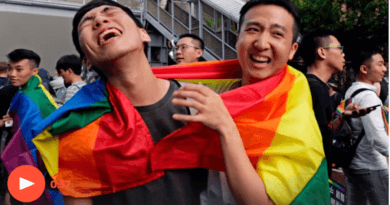Don’t make yourself at home
The Economist|January 17, 2015
Uighurs and Tibetans feel left out of China’s economic boom; ethnic discrimination is not helping
China is urbanising at a rapid pace. In 2000 nearly two-thirds of its residents lived in the countryside. Today fewer than half do. But two ethnic groups, whose members often chafe at Chinese rule, are bucking this trend. Uighurs and Tibetans are staying on the farm, often because discrimination against them makes it difficult to find work in cities. As ethnic discontent grows, so too does the discrimination, creating a vicious circle.
Breaking this circle is crucial to China’s efforts to defuse unrest in Xinjiang, Tibet and Tibetan-inhabited areas of other provinces, which collectively account for nearly one-third of China’s land area. In Xinjiang, Uighur grievances have triggered numerous outbreaks of violence. On January 12th, in what appeared to be the latest such example, six people were shot dead after allegedly attacking police in Shule, a town near China’s border with Central Asia. Uighurs are a Turkic-speaking, mostly Muslim, minority who number about 10m in Xinjiang. In 2000, 80% of them were farmers; ten years later 83% of them were.
There has been far less violence in Tibet, but separatism in the region is no less a headache for China’s leaders. There are more than 6m Tibetans in Tibet and four neighbouring provinces. The proportion of farmers fell only slightly between 2000 and 2010, from 87% to 83%. Some prefer to stay in the fields. But many others feel excluded from the benefits enjoyed by the ethnic Han Chinese, who make up more than 90% of China’s population. Neither Uighurs nor Tibetans enjoy ready access to the job market that has drawn tens of millions of Han to cities in recent years. They are unwelcome, and they know it.
In 2010 about 1% of Tibetans had settled outside the provinces that encompass their homeland, and less than 1% of Uighurs had migrated from Xinjiang, according to census data compiled by Ma Rong of Peking University. Many of the migrants are either officials or in government-sponsored education programmes. The rate of voluntary exodus from Xinjiang and Tibetan areas is slowing considerably.
Part of the problem is linguistic. Uighurs and Tibetans brought up in the countryside often have a very poor grasp of Mandarin, the official language. The government has tried to promote Mandarin in schools, but has encountered resistance in some places where it is seen as an attempt to suppress native culture. In southern Xinjiang, where most Uighurs live, many schools do not teach it.
But discrimination is a big factor, too. Even some of the best-educated Uighur and Tibetan migrants struggle to find work. Reza Hasmath of Oxford University found that minority candidates in Beijing, for example, were better educated on average than their Han counterparts, but got worse-paying jobs. A separate study found that CVs of Uighurs and Tibetans, whose ethnicities are clearly identifiable from their names (most Uighurs also look physically very different from Han Chinese), generated far fewer calls for interviews.
Government programmes help some Uighurs, Tibetans and other minorities get a better education; affirmative-action policies can boost their chances of going to university. One scheme, known as the Xinjiang Class, sends thousands of Uighurs as well as Han Chinese from Xinjiang every year to other parts of China to complete their schooling. But it also encourages them to return to Xinjiang to work among Uighurs. Official figures suggest that 50% end up going back to Xinjiang. Timothy Grose of Rose-Hulman Institute of Technology in Indiana found that most he interviewed would have preferred not to.
One 25-year-old university graduate from the Xinjiang Class describes her months of difficulty in getting a job in Beijing, before landing one at a foreign-owned company. A large Chinese IT firm rescinded a job offer without explanation on the Friday before she was to start work. Another job interviewer then told her she should go back to Xinjiang. Mr Grose reports that some Xinjiang Class members are put off jobs by being told that they cannot be provided with halal meals.
A rash of terrorist incidents involving Uighurs has not helped. In September the central government stressed the importance of “urban ethnic work”, telling city officials not to adopt a “closed-door” policy to minorities, but also not to take a “laissez-faire attitude”. James Leibold of La Trobe University writes that such confused instructions reflect “a growing realisation that mingling might increase ethnic tensions and conflict”.
The government has made token efforts to create job opportunities for Uighurs on the coast, sending busloads of them to work in factories. But employers are wary. In June 2009 in the southern city of Shaoguan in Guangdong province, a brawl between Uighur and Han Chinese workers at a toy factory left two Uighurs dead and dozens injured. This fuelled ethnically charged riots that erupted a few days later in Urumqi, the capital of Xinjiang, in which about 200 died.
Just being a Uighur can draw police attention. In November, while President Barack Obama and other world leaders were in Beijing for a summit, police tried (unsuccessfully) to persuade the landlord of the Xinjiang Class graduate to evict her, saying Uighurs were not welcome. “Sometimes I feel alone,” says the former student. “I feel like I don’t know who I am; where I belong.”


